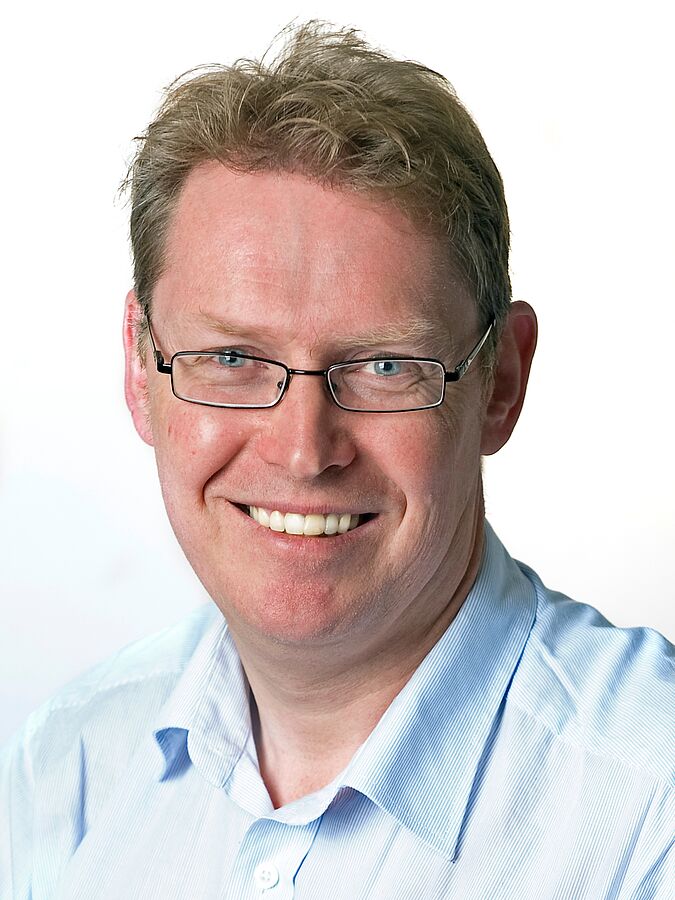Professor Marc Vrakking (The Netherlands, 1963) has been appointed as a new Director at the Max Born Institute (MBI) for Nonlinear Optics and Short Pulse Spectroscopy and as a Professor of Physics at the Freie Universität Berlin. He belongs to the pioneers of attosecond time-resolved laser spectroscopy. At MBI Vrakking takes over the division of Prof. em. Ingolf Hertel. In addition to Vrakking, Prof. Wolfgang Sandner and Prof. Thomas Elsässer are also Directors at MBI.
Marc Vrakking studied Physics in Eindhoven (the Netherlands). Following a period in Okazaki (Japan) he then spent seven years in Berkeley at the University of California, where he researched dynamical processes in molecules using frequency-domain spectroscopy. At the National Research Council in Ottawa (Canada) he began to work with short pulse lasers. From 1997, as leader of a research group at the Institute for Atomic and Molecular Physics (AMOLF) in Amsterdam, Vrakking combined these two areas of research. His primary expertise is time-resolved spectroscopy with short pulse XUV radiation. Here, XUV stands for extreme ultra violet radiation, with wavelengths between appr. 10 and 120 nanometres, i.e. between UV and X-ray. Due to its high photon energy this radiation can ionise any atom or molecule and is therefore universally applicable.
In his work Vrakking uses attosecond pulses that were generated for the first time in 2001. An attosecond is a thousand times shorter than a femtosecond (a femtosecond is a millionth of a billionth of a second). Although scientists were initially unsure to which applications the attosecond pulses could be applied, a whole new direction of research has evolved over the last eight years and Vrakking is one of its leading exponents. In cooperation with research groups throughout Europe, Vrakking has investigated the behaviour of electrons in atoms, molecules. As a result of such intensive co-operations, European research is presently leading in this area. Since electronic motions are extremely rapid, the researchers can only investigate their behaviour making use of extremely short pulses of light, otherwise the observations are blurred.
At MBI Vrakking wishes to expand his research on time-resolved spectroscopy with attosecond pulses. For example, he also plans to turn his attention to surfaces. Commenting on his appointment he stated: “At MBI I have encountered highly motivated scientists with a high level of expertise. They are open to new approaches and I am happy that I can draw on their rich experience and the superb infrastructure.”
Marc Vrakking takes a particular interest in young scientists. He is Coordinator of the Initial Training Network ATTOFEL (Ultrafast Dynamics using Attosecond and XUV Free Electron Laser Sources) which is sponsored by the EU 7th Framework Programme. “At the Max Born Institute I have encountered open-minded people and I have been made to feel very welcome”, reports Vrakking. Together with his wife and daughter he is looking forward to getting to know life in Berlin and its many opportunities.
Contact:
Prof. Marc Vrakking, Max Born Institute (MBI) for Nonlinear Optics and Short Pulse Spectroscopy, Tel.: 030 6392 1200, marc.vrakking@mbi-berlin.de


